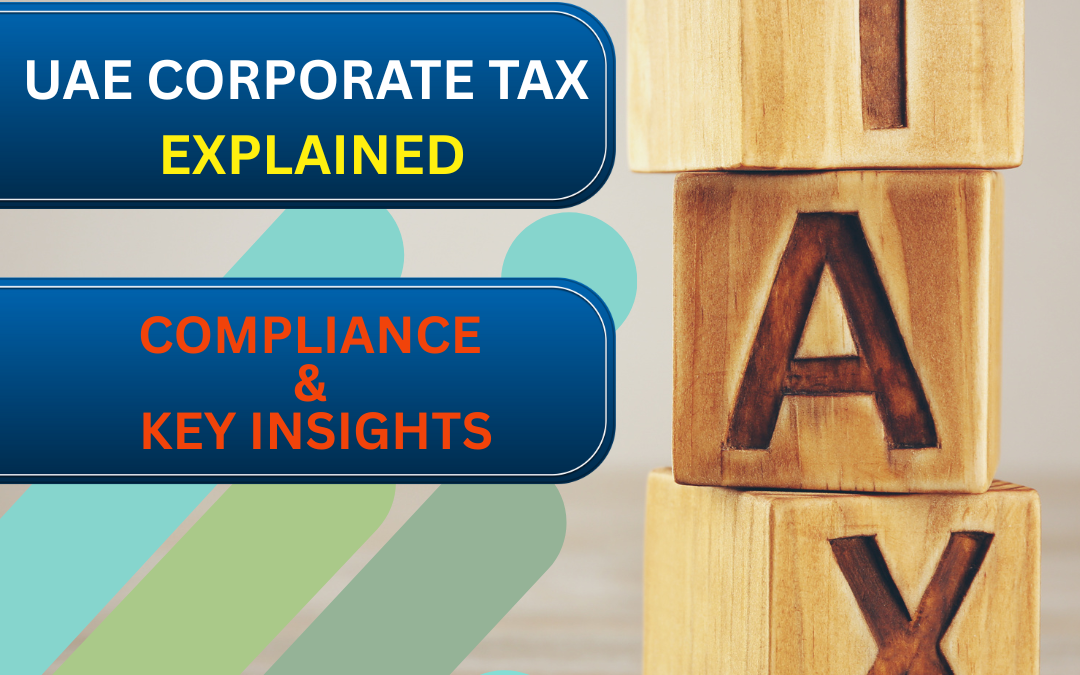Introduction
The UAE has long been a business-friendly destination due to its tax-free environment. However, with the introduction of UAE Corporate Tax, businesses need to understand its implications, compliance requirements, and how to optimize their tax strategies. In this guide, we’ll break down everything you need to know about corporate taxation in the UAE.
What is UAE Corporate Tax?
The UAE Corporate Tax (CT) is a direct tax imposed on businesses’ net profits. The Federal Tax Authority (FTA) introduced this tax to align with global tax standards while maintaining the country’s competitive edge.
Who is Subject to UAE Corporate Tax?
Under the new tax regime, corporate tax applies to:
✅ UAE-incorporated companies
✅ Businesses operating in the mainland
✅ Free zone businesses conducting transactions with the mainland
✅ Foreign entities with a permanent establishment in the UAE
However, businesses registered in qualifying free zones may benefit from a 0% tax rate, provided they comply with certain conditions.
UAE Corporate Tax Rates
The tax rates vary depending on the business’s taxable income:
| Taxable Income | Corporate Tax Rate |
|---|---|
| Up to AED 375,000 | 0% (Tax-Free) |
| Above AED 375,000 | 9% |
| Large Multinational Companies (as per OECD guidelines) | 15% |
Who is Exempt from UAE Corporate Tax?
Certain businesses and entities remain exempt from corporate tax, including:
🚫 Government entities
🚫 Public benefit organizations
🚫 UAE branches of foreign banks (if covered under existing tax treaties)
🚫 Businesses engaged in natural resource extraction (subject to emirate-level taxation)
UAE Corporate Tax Compliance & Filing Requirements
To remain compliant, businesses must:
✔ Register for Corporate Tax with the FTA
✔ Maintain proper accounting records
✔ File annual tax returns within the specified deadline
✔ Pay any applicable tax liabilities
The FTA has made the tax return filing process digital, ensuring ease of compliance for businesses.
How to Reduce Your UAE Corporate Tax Liability Legally
✅ Leverage free zone benefits – Ensure compliance with qualifying conditions to enjoy a 0% tax rate.
✅ Utilize tax exemptions – Check if your business qualifies for any exemptions.
✅ Proper expense management – Deduct eligible business expenses to reduce taxable income.
✅ Structured financial planning – Seek professional CFO services to optimize tax strategies.
Conclusion
The introduction of UAE Corporate Tax marks a significant shift in the business landscape. However, by understanding tax rates, exemptions, compliance obligations, and legal tax-saving strategies, businesses can ensure smooth operations while remaining tax-compliant.
For expert guidance on UAE taxation, Top Next Consultants offers tailored tax planning and compliance solutions to help businesses navigate the evolving tax environment. Click Here for More Info
📞 Contact us today for professional tax advisory services!
